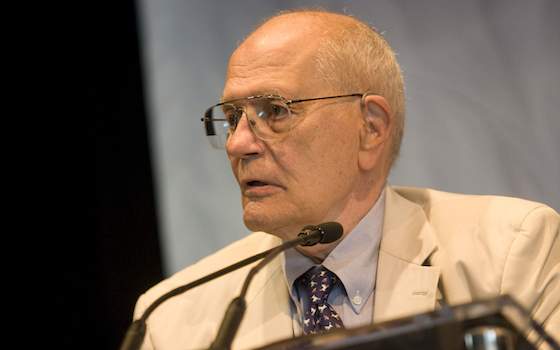- MENU
- HOME
- SEARCH
- WORLD
- MAIN
- AFRICA
- ASIA
- BALKANS
- EUROPE
- LATIN AMERICA
- MIDDLE EAST
- United Kingdom
- United States
- Argentina
- Australia
- Austria
- Benelux
- Brazil
- Canada
- China
- France
- Germany
- Greece
- Hungary
- India
- Indonesia
- Ireland
- Israel
- Italy
- Japan
- Korea
- Mexico
- New Zealand
- Pakistan
- Philippines
- Poland
- Russia
- South Africa
- Spain
- Taiwan
- Turkey
- USA
- BUSINESS
- WEALTH
- STOCKS
- TECH
- HEALTH
- LIFESTYLE
- ENTERTAINMENT
- SPORTS
- RSS
- iHaveNet.com

Congressional Old Guard Retires, Leaving Calcified Partisanship in Place
by Jules Witcover
The trend of abandoning
The 87-year-old legislative expert, winding up 58 years of service, also cited President Obama's recent pivot to the use of executive orders to achieve what he can't get through
Dingell is the 21st member of the House -- 10 Democrats and 11 Republicans -- to announce they will quit at the end of this session, making their decisions one of the rare acts of bipartisanship seen these days on
The current plague of party politics infecting Washington echoes a warning going back to the writing of the Constitution. Prominent founding fathers repeatedly deplored then the possibility of the political community breaking up into "factions" based on ideology or differing objectives.
At the time, the dichotomy was already surfacing between the leaders favoring a strong central government, calling themselves Federalists, and advocates of power residing in the newly formed states, first known only as Anti-Federalists.
The first president, George Washington, was uniformly agreed upon to be above any faction. But the emerging leader of the Anti-Federalists, Thomas Jefferson, was originally so opposed to party alliance of any sort that he once proclaimed: "If I could not go to heaven but with a party, I would not go at all."
Nevertheless, he ultimately became the driving force creating what he first called the Republican, then the
"The quadrennial presidential contest served, after Washington's retirement, both as an inescapable focus for national party competition and as a powerful incentive to national party organization. Even Jefferson soon decided that, with the right party, he would be willing to go, if not to heaven, at least to the
Thereafter, and down through the history of the Republic, party politics reigned, providing the umbrellas under which the continuing battle for national leadership, as well as in the states and most counties and municipalities, has been waged.
On the national level at least, the party system of Democrats and Republicans has been solidified, with only occasional and largely unsuccessful intrusion, by short-lived independent or spinoff parties rebelling against the existing "factions."
The first major breach came in the long run-up to the Civil War, when the then old Federalists hoisted a new Whig banner before the appearance of the
In 1912, former Republican President Theodore Roosevelt broke with his party and ran as the Progressive or
In 2000, consumer advocate Ralph Nader ran and lost on a third-party slate, but won enough votes in Florida that, had they gone to Democratic nominee Al Gore, as exit polls suggested, he would have been elected over Republican George W. Bush.
In all this, the founding fathers were prescient in their warning about the dangers inherent in the formation of political "factions." Yet the development of parties was inevitable as the realities of conflicting views within competitive political forces emerged, and our politics eventually evolved into the dominant two-party system. And John Dingell's reminder that compromise is the essential element if
Receive our political analysis by email by subscribing here
AMERICAN POLITICS
WORLD | AFRICA | ASIA | EUROPE | LATIN AMERICA | MIDDLE EAST | UNITED STATES | ECONOMICS | EDUCATION | ENVIRONMENT | FOREIGN POLICY | POLITICS
Article: Copyright ©, Tribune Content Agency
Congressional Old Guard Retires, Leaving Calcified Partisanship in Place